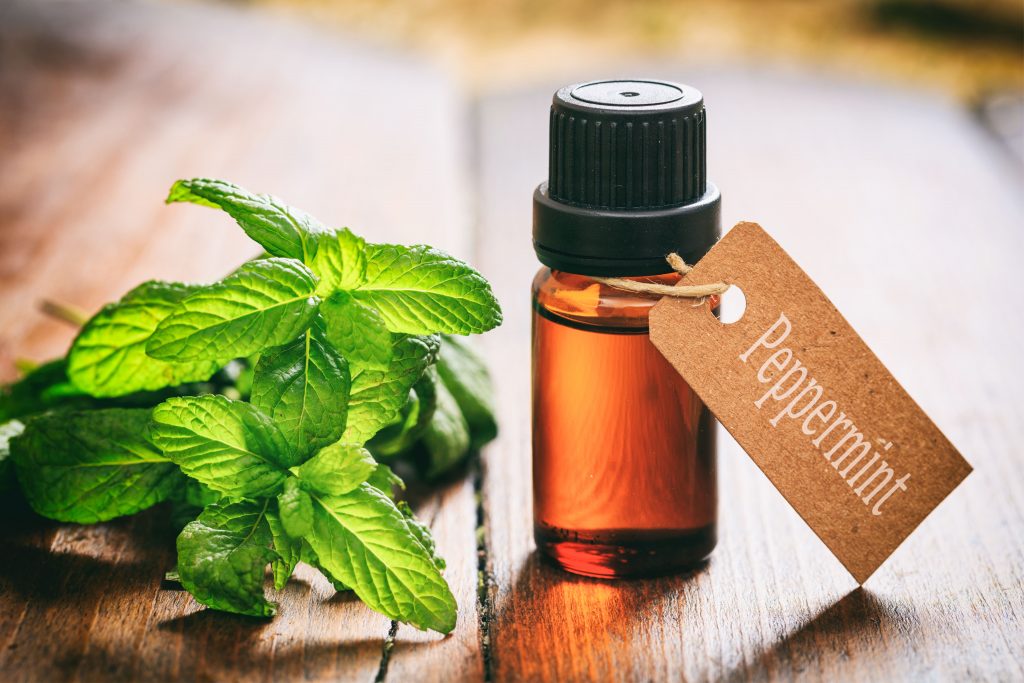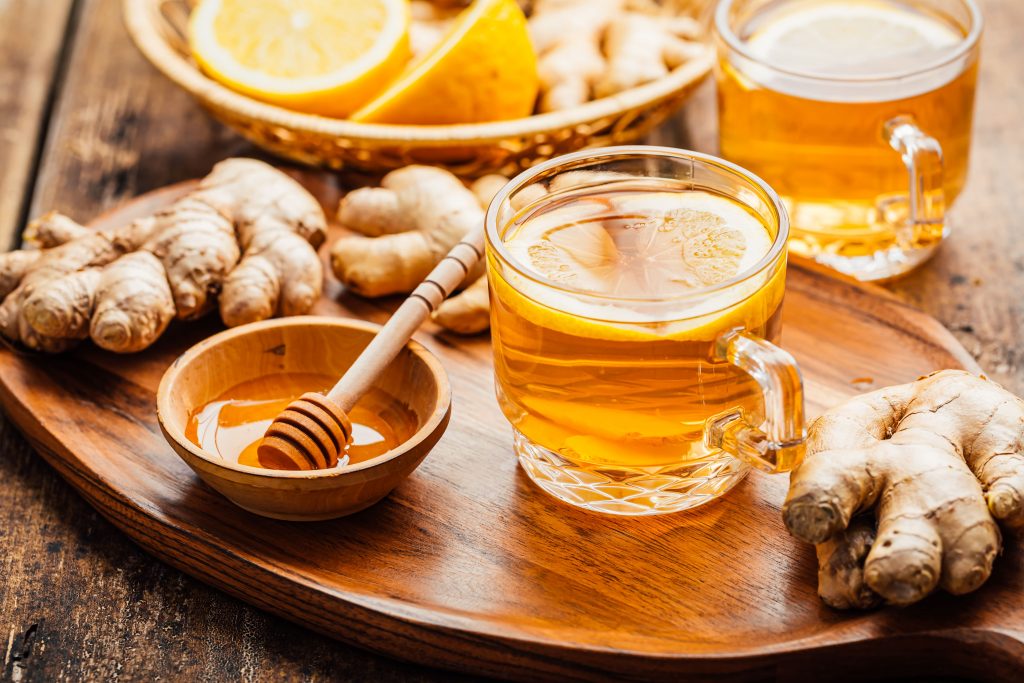Are you tired of relying on over-the-counter medications for common health issues? Looking for natural remedies that can provide relief without any harsh side effects? Well, you’re in luck! In this article, I’ll be sharing five natural remedies for common health issues that you can easily incorporate into your daily routine.
From headaches to indigestion, these remedies have been used for centuries and have proven to be effective in providing relief. So, if you’re ready to take a more holistic approach to your health, keep reading!
Whether you’re dealing with a pesky cold, a nagging headache, or even a case of insomnia, these natural remedies can help alleviate your symptoms and promote overall well-being. So, let’s dive in and discover the power of nature’s medicine cabinet!
1. Peppermint Oil For Digestive Discomfort
Peppermint oil is a natural remedy that has been used for centuries to alleviate digestive discomfort. It is especially effective in relieving symptoms of irritable bowel syndrome (IBS) and headaches.
When ingested, peppermint oil helps relax the muscles of the gastrointestinal tract, reducing spasms and relieving bloating, cramping, and pain associated with digestive issues. Studies have shown that peppermint oil can significantly reduce symptoms of IBS, such as abdominal pain and changes in bowel habits.
There are several ways to use peppermint oil for digestive discomfort. One popular method is to add a few drops of peppermint oil to a cup of hot water and sip it as a soothing tea. The steam inhalation from the tea can also help relieve sinus congestion and headaches. Another option is to use a diffuser to disperse the aroma of peppermint oil into the air, providing a sense of calm and easing digestive discomfort.
Peppermint oil can also be applied topically on the chest to soothe indigestion and promote relaxation. Simply dilute a few drops of peppermint oil with a carrier oil, such as coconut or almond oil, and massage it onto the chest area.

2. Honey For Sore Throat
Honey has long been used as a natural remedy for soothing a sore throat. It contains throat-coating properties that help reduce irritation and provide relief. When you have a sore throat, the lining of your throat can become inflamed and irritated, causing discomfort and pain. Honey acts as a protective barrier, coating the throat and reducing the friction that can exacerbate these symptoms.
There are a couple of ways you can use honey for sore throat relief. You can consume a spoonful of honey on its own, allowing it to slowly coat your throat as it goes down. This can provide immediate relief and help soothe the irritation. Another option is to stir honey into a warm cup of tea. Not only does this add a touch of sweetness, but the warmth of the tea can also provide additional comfort to your throat.
It’s important to note that honey should not be given to infants or toddlers under the age of 1. This is because honey can contain a bacterium called Clostridium botulinum, which can cause infant botulism, a serious form of food poisoning. Older children and adults can safely enjoy the benefits of honey for soothing a sore throat.
3. Ginger For Nausea
Ginger has long been recognized for its ability to ease nausea and upset stomachs. It has been used traditionally for centuries, especially in treating morning sickness and motion sickness. But its benefits extend beyond just relieving queasiness; ginger has potential benefits for several health conditions.
One of the most well-known uses of ginger is for relieving nausea. Whether it’s caused by pregnancy, chemotherapy, or general stomach discomfort, ginger can help ease the symptoms. It works by directly targeting the digestive system, soothing irritation and reducing inflammation.
Not only does ginger have the ability to alleviate nausea, but it also has potential benefits for preventing and treating other illnesses. Studies have shown that ginger may help reduce the risk of heart disease by lowering blood pressure and improving blood flow. It may also have anti-inflammatory properties that can combat chronic inflammation, which is linked to various health problems, including cancer.
Ginger can be consumed in various forms, making it convenient for anyone seeking relief from nausea. Fresh or dried ginger can be added to meals and beverages, or ginger tea can be brewed. For those who prefer a more concentrated form, ginger capsules or supplements are also available. The best part is that ginger is generally well-tolerated, with rare negative side effects.
4. Lavender Oil For Stress And Anxiety
Lavender oil is a popular natural remedy known for its calming and soothing properties. It has been used for centuries to help reduce stress and anxiety levels. The sweet, floral scent of lavender oil can have a powerful impact on the mind and body, promoting a sense of relaxation and tranquility.
Research has shown that lavender oil can effectively alleviate symptoms of stress and anxiety. Inhaling the aroma of lavender oil has been found to reduce the levels of stress hormones in the body and promote feelings of calmness. This makes it a great option for those undergoing moments of high stress or experiencing anxiety.
One of the main benefits of lavender oil is its ability to induce sleep. Insomnia is often a result of stress and anxiety, and lavender oil can help alleviate both of these conditions. Diffusing lavender oil in the bedroom or adding a few drops to a warm bath before bedtime can create a soothing environment that promotes relaxation and a good night’s sleep.
There are various ways to use lavender oil. You can add a few drops to a carrier oil and massage it onto your temples, wrists, or the back of your neck. You can also add a few drops to a diffuser and let the aroma fill the room. Another option is to add a few drops to your bath water for a soothing soak.
5. Ginger Tea To Lower Blood Pressure
Ginger tea is a natural remedy that has been used for centuries in traditional medicine practices to promote overall health and well-being. One of the potential benefits of ginger tea is its ability to lower blood pressure.
Blood pressure is a common health issue that affects many individuals worldwide. High blood pressure can increase the risk of heart disease, stroke, and other serious health conditions. While there are conventional medications available to manage blood pressure, some people prefer to explore natural alternatives.
Ginger tea is known to improve blood flow and circulation, which can help reduce blood pressure levels. The active compounds in ginger, such as gingerol, have been found to have vasodilatory effects, meaning they can help widen blood vessels and promote better blood flow.
To make ginger tea, simply steep fresh ginger slices or grated ginger in hot water for about 10 minutes. Strain the mixture, and you have a refreshing cup of ginger tea ready to drink. It can be enjoyed hot or cold, depending on your preference.
It’s important to note that while ginger tea may have potential benefits for lowering blood pressure, it’s always best to consult with a healthcare professional before making changes to your medication regimen. They can provide personalized guidance and ensure that ginger tea is a safe option for you.
Incorporating ginger tea into your routine, alongside a healthy diet and lifestyle, may offer a natural and holistic approach to managing blood pressure levels. However, it’s essential to remember that individual results may vary, and it’s crucial to prioritize regular check-ups and follow your healthcare provider’s advice.

Conclusion
In conclusion, natural remedies can be a safe and effective alternative for common health issues. While it’s important to consult with a healthcare professional for serious or chronic conditions, these natural remedies can provide relief for minor ailments.
By incorporating these remedies into your daily routine, you can support your overall health and well-being. Remember to listen to your body and adjust the remedies as needed. It’s always a good idea to start with small doses and gradually increase if necessary.
